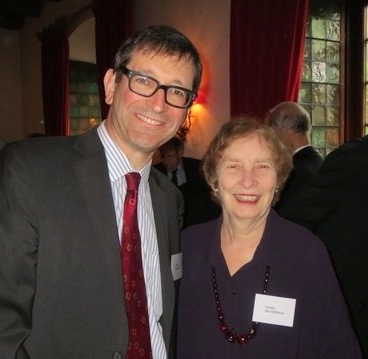Reality and Myth: A Symposium on Axel Wenner-Gren
 Our President, Dr. Leslie Aiello, guest blogs on the recent symposium held in Sweden examining the life, career and politics of Foundation founder Axel Wenner-Gren.
Our President, Dr. Leslie Aiello, guest blogs on the recent symposium held in Sweden examining the life, career and politics of Foundation founder Axel Wenner-Gren.
One of the highlights of the summer for the Foundation was the two-day symposium on “Reality and Myth: A Symposium on Axel Wenner-Gren.” This meeting was co-sponsored by the Swedish Wenner-Gren Foundations and ourselves and was held May 30-31, 2012 at the Wenner-Gren Center in Stockholm, Sweden. The Chair (Seth Masters) and Vice Chair (John Immerwahr) of our Board of Trustees and a number of Foundation staff attended.
Axel Wenner-Gren is an enigma because in the 1930s he was one of the wealthiest men in the world, but has now slipped largely into obscurity. His surviving legacy is his philanthropic achievements through the Wenner-Gren Foundation for Anthropological Research and the Swedish Wenner-Gren Foundations that specialize in scientific research and international scientific exchange. The main purpose of the meeting was to understand more about his life and career.
The two-day symposium grew out of the research into the politics of Axel Wenner-Gren by Ilja Luciak (Professor of Political Science at Virginia Tech University) who was jointly funded by both foundations. The symposium also provided the welcome opportunity for the Swedish and New York Foundations, which have been largely independent throughout their existences, to make contact and discuss common areas of interest.

The symposium itself covered all aspects of Axel Wenner-Gren’s life and was divided into four sessions. The first session on the economic dimension of his life covered his career at Electrolux where he made his fortune in vacuum cleaners and refrigerators as well as his later economic ventures in Latin America and Canada. The second session on the political dimension surveyed his political ambitions and activities in Europe and the Bahamas leading up to and during World War II. It also covered the relationship between Sweden and Nazi Germany during the war years. The third session on the social dimension focused primarily on the histories of the New York and Swedish Foundations but also included an interesting presentation on the legacy of the Wenner-Gren scientific expedition to Peru in 1939-1940, which discovered many of the important archaeological sites along the Inca trail and lead to the founding of the Department of Archaeology at the University of Cuzco. The concluding session on the social dimension provided the opportunity to hear from some of the surviving Wenner-Gren family and others who knew him personally about life during the height of his influence in Sweden and in the following years in the Bahamas and Mexico.
You can also listen to Sydel Silverman, a past Wenner-Gren President, talk about the story of New York’s Wenner-Gren Foundation for Anthropological Research.
Download “The History of the Wenner-Gren Foundation, New York” now.
To learn even more about Wenner-Gren and the larger history of the Foundation, visit our History page.